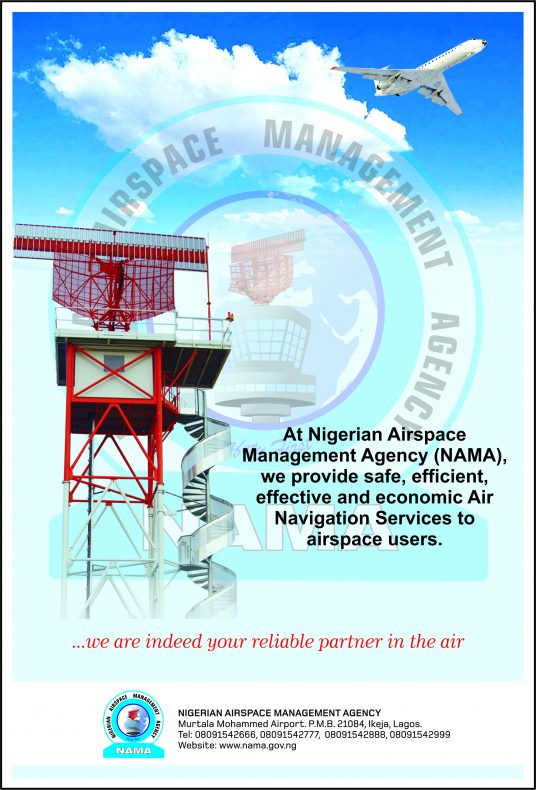BY ANTHONY OMOH
Olubunmi Kuku, Managing Director of the Federal Airports Authority of Nigeria (FAAN), remains resolute in turning around Nigeria’s airports. Her bold vision focuses on redefining passenger experience, enhancing airport infrastructure, and transforming gateways into international standards. “We aim to create airports that make Nigerians proud, setting a benchmark for excellence,” she said.
However, achieving this vision requires overcoming decades of neglect, mismanagement, and underfunding that have plagued the aviation sector. Mrs. Kuku faces an uphill battle against bottlenecks, bureaucratic hurdles, and limited funding for capital-intensive projects. “Revitalizing the system is challenging, but we can achieve significant results with strategic collaborations and persistence,” she emphasized.
One of the most pressing challenges is managing state-built airports, many of which lack long-term planning or sustainable operations. FAAN often takes over these facilities, which adds to its financial strain. “FAAN currently manages 23 airports, but only three—Lagos, Abuja, and Kano—are profitable. This imbalance puts enormous pressure on our limited resources,” Mrs. Kuku explained.
Addressing State Airport Liabilities
FAAN officially took over the Sir Abubakar Tafawa Balewa International Airport in Bauchi in November 2023. Similarly, FAAN integrated Gombe Airport into its operations. While these handovers aim to improve operational efficiency, they also present significant financial and logistical challenges. “We’ve made progress with Gombe Airport, but we need to do more to make it viable,” Mrs. Kuku said.
The argument of this action has always generated debate centred on viability with the question: If these airports are as economically viable as the builders say, how come they do not run it themselves for an extended period instead of making it another’s burden to bear? However, some have equally seen potential in these airports. Bankole Bernard, Group Managing Director of Finchglow Holding, raised concerns about the strategic intent behind these airport developments. He however, suggested they repurpose them as cargo hubs to drive economic growth. Bernard acknowledged the efforts of states to establish airports but questioned their strategic intent, noting, “We might say they don’t know what they are doing, but it’s a major investment with significant opportunities.”
He emphasized the growing global demand for cargo transport and the untapped potential in exporting goods from Nigeria. “The business is changing,” he stated, adding that for these state airports to succeed, authorities must collaborate with industry experts to create efficient packaging systems and facilities for preserving goods. He stressed that states must invest in the infrastructure and expertise necessary to maximize the opportunities presented by the cargo sector, rather than focusing solely on passenger traffic.
If properly restructured, Bernard believes state airports could become key players in boosting Nigeria’s non-oil exports and economic diversification.
Hope Rising Through Shared Responsibilities
Despite these challenges, several state governments are actively working to support airport development. Governor Dr. Umar Bago of Niger State is committed to completing Minna Airport’s infrastructure and overseeing its operations. Bernard praised this collaboration, noting that such proactive efforts are key to realizing positive outcomes in regional aviation development.
Meanwhile, Mrs. Kuku has demonstrated her commitment to supporting cargo business and export initiatives, particularly in Plateau State agriculture. In June 2024, Mrs. Kuku met with Governor Caleb Mutfwang at Yakubu Gowon Airport, Jos, where she pledged her support. She emphasized that Plateau State’s rich agrarian resources have the potential for both local and global trade, which aligns with her vision.
She explained, “Plateau State has vast agricultural resources, and we can leverage these to create a thriving cargo hub.” Mrs. Kuku further elaborated, “By improving airport infrastructure, we can unlock significant value, helping local farmers access international markets more efficiently.”
Mrs. Kuku pledged to assist the state government in setting up a cargo terminal to facilitate exports, boosting local economies. She stated, “While we may need to invest in major cargo infrastructure, we should not wait for it to begin.”
She added, “We can start by focusing on our immediate surroundings, organizing market days to connect farmers with buyers.” Mrs. Kuku suggested, “We could market perishable items and encourage people nationwide to fly in, creating demand and investment opportunities.”
Mrs. Kuku concluded, “This will foster investments in packaging, testing, storing, and transporting agricultural produce across the country. The possibilities are endless.” She reiterated that such an initiative would not only benefit Plateau State but also contribute to national economic growth.
Primary Airports as Growth Drivers
Nigeria’s aviation sector relies heavily on its three major airports—Murtala Muhammed International Airport (Lagos), Nnamdi Azikiwe International Airport (Abuja), and Mallam Aminu Kano International Airport (Kano). These hubs drive growth, sustaining smaller airports across the country. Mrs. Kuku explained, “Lagos is the heartbeat of our aviation sector, but its Terminal One, built in the 1970s, struggles to handle the current traffic.” She emphasized the urgent need for expansion to address the capacity crunch and improve passenger experience.

Dr. Ibrahim Kana with the Managing Director of Federal Airports Authority of Nigeria (FAAN),
Mrs Olubunmi Kuku, Adebola Joy Agunbiade, Director of Commercial and Business
Development and Capt. Abdullahi Zubeir Mahmood, Director of Airport Operations
during the tour of the Murtala Muhammed International Airport, Lagos.
Kano and Abuja airports also play critical roles. “Kano excels in cargo and international operations, while Abuja has immense untapped potential. With its rail link and other infrastructure, Abuja could become a key connection point across Africa,” she said.
Underutilized Opportunities
Despite having functional infrastructure, some airports experience limited airline activity. Kuku states that for its size the Nnamdi Azikiwe International Airport, Abuja could pull its weight more as it is underutilized.
“Abuja Airport for the size and for the facilities that we have on the international side, is also underutilized. We can definitely do more as a point of connection across Africa specifically. Abuja also has some critical facilities which are key to the strength of the nation.”
The underutilization in Abuja is however dwarfed by another Nigerian airports. “Take Port Harcourt’s Obafemi Jeremiah Awolowo International Airport, for example,” Mrs. Kuku highlighted. “The international terminal operates with only two airlines—Lufthansa and Ethiopian Airlines. This underutilization undermines the significant investment made.”
Similarly, the Akanu Ibiam International Airport in Enugu has yet to complete its new terminal. “The project, handled by CCECC, is progressing, but final works are needed to meet international standards,” she added. Regional and domestic connectivity must also improve to optimize these airports’ potential.
Challenges of Secondary Airports
Secondary airports, including those in Benin, Owerri, Calabar, and Ilorin, face additional challenges like limited operational hours due to visibility constraints. “These are sunrise-sunset airports, shutting down operations after dark due to inadequate lighting. Without significant upgrades, they will remain underutilized,” Mrs. Kuku explained.
The financial implications of sunset airports weigh heavily on both airlines and airport managers. For airlines, the inability to operate full schedules translates to lost revenue. With limited flight slots during daylight hours, passenger loads drop, while fixed operational costs, such as aircraft maintenance and crew salaries, remain unchanged. Additionally, the lack of night-time operations makes it difficult for airlines to schedule lucrative cargo flights, further compounding financial losses.
FAAN also face a significant economic burden. Limited flight operations result in reduced revenue from landing fees, passenger service charges, and concessionaire activities. Many of these airports depend on government subsidies to remain operational, placing additional strain on Nigeria’s aviation budget. The inability to generate sustainable revenue stunts their potential to invest in necessary upgrades, further locking these airports in a cycle of underperformance.
This debate on who pays for the night flights has been on forever. FAAN, NAMA feel the burden should go to the airline as the routes can be flown earlier during the day. Airlines, however, feel it a responsibility and an investment that would grow the industry. And although in the works to increase certain charges, Kuku states that now is not that time. Especially with the current challenges FAAN is grappling with
A Vision for the Future
Despite these obstacles, Mrs. Kuku remains optimistic about the future of Nigerian airports. “Our focus is on completing ongoing projects, expanding capacity at key hubs, and addressing the limitations of secondary airports,” she stated. Collaboration with stakeholders will be critical to unlocking the full potential of the aviation sector.
“Our airports can transform Nigeria into a leading aviation hub in Africa, but this requires collective effort. Together, we can turn challenges into opportunities,” Mrs. Kuku concluded, reiterating her commitment to turning around Nigeria’s airports.
























